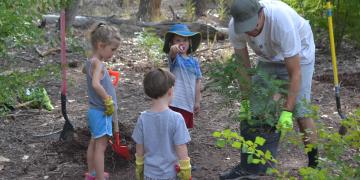Strengthened understanding & systematization of knowledge on the impacts of climate change (CC) to water management in the region
Enhancing water system infrastructure for improved drinking water supply in rural communities in the case of drought and flooding
Restored wetland ecosystem services for water management
Improved early warning systems
Climate Resilient Agro Ecosystems and Extension Support
